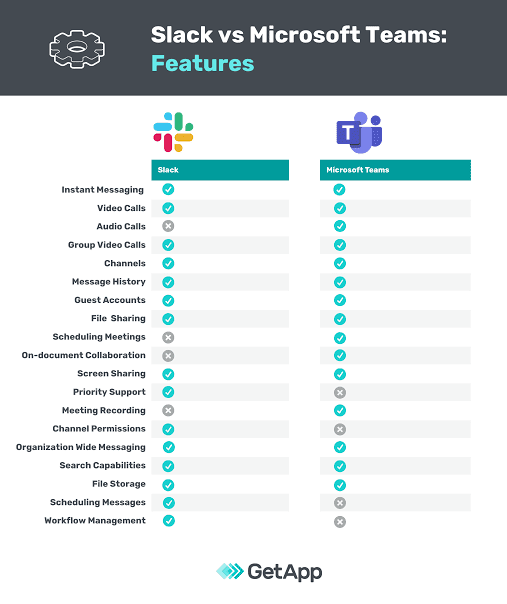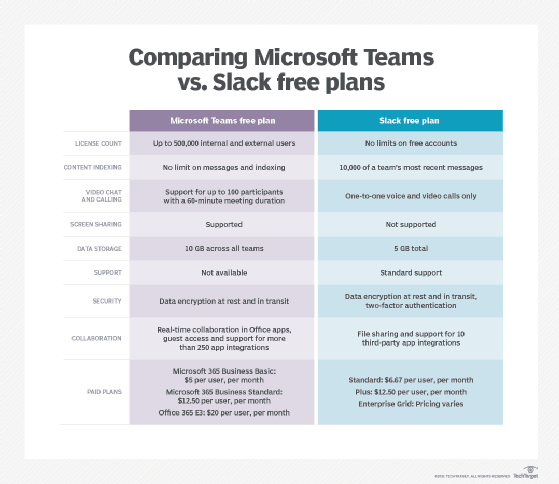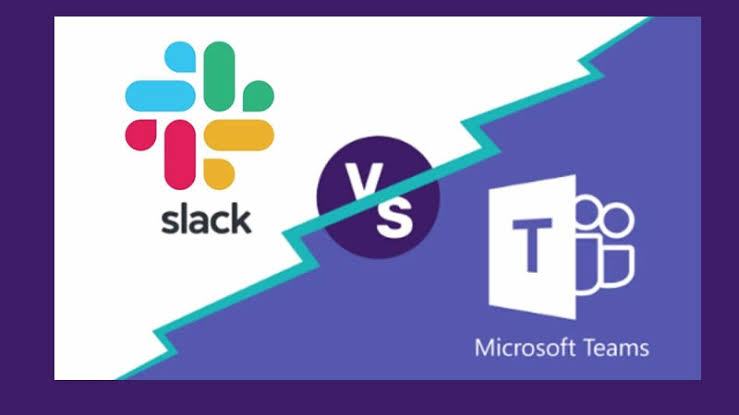Effective communication and collaboration are essential for businesses to thrive. Tools like Slack and Microsoft Teams have emerged as popular choices for streamlining team interactions. But with so many options available, how do you decide which platform is the best fit for your organization?
In this blog post, we will look into the battle of Slack vs. Teams. We will compare their key features, pricing, and integrations to help you make an informed decision. Whether you’re a small startup or a large enterprise, understanding the differences between these two platforms can significantly impact your team’s productivity and efficiency.
Key Takeaways
- When team members can easily access and contribute to projects, they are more likely to come up with innovative solutions and drive business growth.
- One of the primary benefits of collaboration tools is their ability to improve communication.
- As businesses continue to evolve and become more interconnected, the importance of collaboration tools will only grow.
Importance of Collaboration tools for businesses

Due to the interconnectedness of today’s business world, effective collaboration is more crucial than ever. Collaboration tools have emerged as indispensable assets for businesses of all sizes, fostering teamwork, enhancing productivity, and driving innovation. These tools provide a centralized platform for teams to communicate, share information, and work together seamlessly, regardless of their physical location.
One of the primary benefits of collaboration tools is their ability to improve communication. By offering features like instant messaging, video conferencing, and file sharing, these tools facilitate real-time interaction and eliminate the barriers created by geographical distance. This streamlined communication fosters a sense of connection and unity among team members, leading to increased efficiency and better decision-making.
Furthermore, collaboration tools play a vital role in enhancing productivity. By providing a centralized workspace for projects, these tools help teams stay organized and focused. Tasks can be assigned, deadlines can be tracked, and progress can be monitored, ensuring that everyone is on the same page and working towards common goals. This increased efficiency not only saves time but also improves the quality of work.
Moreover, collaboration tools are essential for fostering innovation. By encouraging the sharing of ideas and knowledge, these tools create a culture of creativity and problem-solving. When team members can easily access and contribute to projects, they are more likely to come up with innovative solutions and drive business growth.
Slack vs Teams: Key features and benefits

Regarding team communication and collaboration, Slack and Microsoft Teams have emerged as the two leading platforms. Both offer a suite of features designed to streamline workflows and enhance productivity.
However, they each have unique strengths and cater to different user preferences and organizational needs. In this comparison, we’ll delve into the key differences between Slack and Teams to help you determine which platform is the best fit for your team.
Our comparison and review would be based on their key features, pricing, and integrations.
Slack is a modern communication platform that has revolutionized the way teams collaborate and work together.
Microsoft Teams is a collaboration platform that facilitates connectivity, organization, and progress for teams. It allows communication through chat, calls, and meetings from any location and device.
Related article: How to use QuickBooks for small business accounting: 5 Essential Things to do as a beginner
Factors to Consider When Choosing Between Slack and Teams
- Microsoft-centric Organizations: If your organization primarily uses Microsoft products, Teams seamlessly integrates with your existing workflow.
- Non-Microsoft Organizations: Slack’s broader integration capabilities make it a more versatile choice for teams using a variety of tools.
- Audio and Video Calls: Teams offer superior audio and video calling features, making it ideal for teams that rely heavily on these forms of communication.
- Chat-Based Communication: Slack’s focus on chat-based interactions makes it a better fit for teams that prefer this method of communication.
- Organization Size: Teams generally offer a smoother user experience when scaling to larger organizations, making it a preferred choice for enterprises. Both Slack and Teams can effectively support smaller teams, but Teams’ integration with Microsoft products can provide additional benefits.
Interface
Both Slack and Microsoft Teams have similar user interfaces, featuring chats, groups, notifications, and file sharing. While Teams leverages the robust backend of Microsoft SharePoint for version control, access management, and security, both platforms offer mobile, browser, and desktop versions. Microsoft Teams interface seems to be more intuitive, as it separates features into channels, providing a clearer organization than Slack’s more integrated layout.
Features

Both Slack and Teams offer essential collaboration features like video calls, messaging, and file sharing. However, Teams excels in its extensibility, offering unlimited one-to-one meetings lasting up to 30 hours and unlimited group meetings. While this can sometimes lead to an overwhelming number of chats and channels, Teams’ features like captions (even with challenges for accents) and meeting attendance reports provide valuable insights.
Additionally, Teams’ integration with PowerApps and other apps enhances its functionality. Slack, on the other hand, offers free one-to-one calls and video chats but lacks group calls.
Beyond these core features, both platforms offer additional tools like calendars, forms, polls, and integrations with popular apps like Miro, Project, SharePoint, and OneNote. Teams’ wider range of integrations and its association with Microsoft Office 365 Business packages give it an edge in terms of extensibility.
Pricing

While both Slack and Teams offer free and paid versions, Teams’ pricing is often tied to Microsoft Office 365 subscriptions, while Slack provides more flexible options.
Microsoft Teams offers a more cost-effective solution than Slack, especially when considering the bundled Microsoft 365 Business Basic plan. For the same price as Slack’s Pro plan, Microsoft 365 Business Basic provides Teams along with other essential Microsoft services like Exchange, Outlook, SharePoint, OneDrive, and more.
Slack’s paid plans, starting at $8.75 per user, offer a limited feature set compared to Microsoft Teams, and additional features like 99.99% uptime and administrator privileges come at a significant premium.
Therefore, Microsoft Teams is a better value proposition if you’re interested in a comprehensive suite of business applications. However, if your organization already uses Google Workspace or other office app solutions, Slack’s integration capabilities make it a more attractive option.
| Slack | Teams | |
| Pricing model | FreemiumPro plan offers $7.25 per person/month, when billed yearly and $8.75 per person/month when billed monthly Business+ plan offers $12.50 per person/month, when billed yearly and $15 per person/month when billed monthly Enterprise Grid plan offers a customizable plan upon contact to the sales team | FreemiumMicrosoft Teams Essentials offers $4.00 per person/month paid annually. Microsoft 365 Business Basic offers $6.00 per person/month paid annuallyMicrosoft 365 Business Standard offers $12.50 per person/month paid annuallyMicrosoft 365 Business Premium offers $22.00 user/month paid annually |
See also: Top 20 Angel Investors in Nigeria and How to Get Funding from Them
Customer Reviews
Customer reviews provide invaluable insights into the real-world experiences of users with Slack and Microsoft Teams. These reviews can gain a deeper understanding of the strengths and weaknesses of each platform, identify common pain points, and discover which platform better aligns with the specific needs and preferences of different teams and organizations.
Microsoft Teams Reviews

“Without a doubt, the fluid collaboration that Teams enables has a positive impact on our ability to be responsive and focus on the work to be done”
Matthew Woodget, CEO of Go Narrative

“With our Teams-based video banking service, every customer immediately gets an advisor.”
Vincent Bakker, Daily Banking Advisor, ABN AMRO

“Teams provided the capacity we needed to ramp up our conferencing capabilities during a critical time.”
Ryan Wright, Lead Engineer of Unified Communications, REI
Slack Reviews

“The move to remote work caused a lot of pain initially, and our employees were looking for their colleagues in the physical space around them. The big question was, ‘How do we create a digital representation of the office?’ This is where Slack comes in.”
Aspi Havewala, Global Head of Digital Workplace, Verizon

“Slack is integral to how we work and communicate. The rapid shift to remote work during the early pandemic era expedited Flatiron’s efforts to create a successful and engaged hybrid work environment. “The timing was right … for a comprehensive company directory to connect people at work and socially”
Emily Guerin, Flatiron’s head of communications.

“With Slack, we can expand the depth of knowledge we can share with, and between, oncologists and empower our providers with a superior physician experience that puts actionable information at their fingertips.”
Dr. Davey Daniel, Chief Medical Officer, OneOncology
Conclusion
In summary, collaboration tools are indispensable assets for businesses in today’s digital age. By improving communication, enhancing productivity, and fostering innovation, these tools empower teams to work together more effectively and achieve their goals.
As businesses continue to evolve and become more interconnected, the importance of collaboration tools will only grow.
FAQs
Which platform is better for small businesses?
Both Slack and Teams can be effective for small businesses. Slack’s simplicity and flexibility might be more suitable for smaller teams, while Teams’ integration with Microsoft 365 can be advantageous for businesses using other Microsoft products.
Slack vs teams, which platform has a free version?
Both Slack and Teams offer free versions with limited features. However, the paid versions of both platforms provide more advanced features and capabilities.


